President Bola Ahmed Tinubu has reaffirmed the federal government’s commitment to promoting local content, technology transfer, and the economic empowerment of Nigerians through strategic infrastructure projects. The President made this pledge in Lagos during the official commissioning of the first phase of the Lagos-Calabar Coastal Highway, alongside several other major road projects spanning all six geopolitical zones of the country.
Speaking at the event, President Tinubu directed the Minister of Works, David Umahi, and all relevant officials to ensure strict compliance with local content requirements, the training of Nigerian professionals, and effective technology transfer on every federal infrastructure project. He emphasized that the administration would no longer compensate developers who disregard legal building setbacks or fail to secure proper approvals, stressing that urban planning laws must be respected for the collective good.
“Developers who fail to get approvals will not be compensated. We have gazetted and published the setback, and we will enforce it in any way possible,” the President said. He further appealed to Nigerians to exercise patience with the government’s reforms, assuring the public that tangible improvements are underway. He cited the recent stability of the foreign exchange market and a gradual reduction in food prices as signs of economic recovery and renewed hope.
The Lagos-Calabar Coastal Highway, a 700-kilometre project designed to connect the coastal states of Lagos, Ogun, Ondo, Delta, Edo, Bayelsa, Rivers, Akwa Ibom, and Cross River, had its Phase I, Section I flagged off by the President. This initial stretch runs from Ahmadu Bello Way to Eleko Village in the Lekki Peninsula, Lagos. The project is seen as a strategic investment in national connectivity, tourism, and trade.
In addition to the coastal highway, President Tinubu also commissioned a wide range of road infrastructure projects across Nigeria. In the South-South region, he inaugurated the rehabilitation of the Calabar-Ugep-Katsina-Ala Road (Section II) spanning Cross River and Benue States; the dualisation of the East-West Road from Eleme Junction to Ahoada in Rivers State; the Alesi-Ugep Road in Cross River; and the upgraded Eleme Junction-Onne Port Road, also in Rivers.
In the South-East, the President commissioned the rehabilitated Enugu-Port Harcourt Road (Section III: Enugu-Lokpanta), a new bridge at Akpoha in Ebonyi State to replace a near-collapsed structure, and the reconstruction of the Enugu Bridge at the New Artisan Market along the same corridor. These projects are aimed at improving access and road safety in the region.
The South-West witnessed the commissioning of critical infrastructure, including the rehabilitation and expansion of the Lagos-Shagamu-Ibadan Expressway (Section II in Oyo State), the reconstruction of the Ikorodu-Shagamu Road in Lagos, the comprehensive repair of the 4.1-kilometre Eko Bridge from Alaka in Surulere to Apongbon (including all ramps), and the construction of the Deep-Sea Port Access Road linking Epe to the Shagamu-Benin Expressway across Lagos and Ogun States.
In the North-Central zone, President Tinubu inaugurated the construction of the Shendam Bridge in Plateau State and the Ilobu-Erinle Road spanning Kwara and Osun States. For the North-East, he commissioned the newly constructed Jimeta Bridge in Yola, Adamawa State.
The North-West also benefited from major road projects, including the reconstruction of the Yakasai Badume-Damargu-Marken Zalli Road in Kano State, and the Kano-Kwanar Danja–Hadeja Road (Section II) connecting Kano and Jigawa States.
President Tinubu also flagged off several new highway projects nationwide. These include the Ibadan-Ife-Ilesha-Akure-Benin Road across Oyo, Osun, Ondo, and Edo States; the construction of the Nembe-Brass Road in Bayelsa State; a major section of the Enugu-Onitsha Dual Carriageway measuring over 100 kilometres; the rehabilitation of the Zaria-Hunkuyi-Kufur-Gidan Mutum Daya Road in Kaduna and Kano States; and the dualisation of the Kano-Maiduguri Road (Section I: Kano-Wudil-Shuarin) covering 105 kilometres. Additional projects launched include the Kano Northern Bypass and the construction of the Maiduguri Bypass Road.
Highlighting the federal government’s efforts to mitigate the social impact of these developments, the Minister of Works, David Umahi, disclosed that ₦18 billion had been disbursed as compensation to persons affected by the Lagos-Calabar Coastal Highway. He noted that the President’s directive is clear: all projects must prioritize the well-being of Nigerians and adhere to principles of environmental and economic sustainability.
Also speaking at the event, Senate President Godswill Akpabio assured the President of the National Assembly’s full support for policies aimed at repositioning the country’s economy through infrastructure renewal.
The high-profile event in Lagos drew the attendance of several state governors, including those of Lagos, Delta, Ogun, Edo, Bayelsa, Borno, Ekiti, Kogi, Ondo, Cross River, and Imo States. Nobel Laureate Prof. Wole Soyinka, National Security Adviser Nuhu Ribadu, the Chagoury brothers, and leading business figures such as Aliko Dangote, Abdulsamad Rabiu, and UBA Group Chairman Tony Elumelu were also present.
President Tinubu’s nationwide infrastructure push is being interpreted as a critical step in driving inclusive development, enhancing mobility, boosting the economy, and creating new jobs for Nigerians.


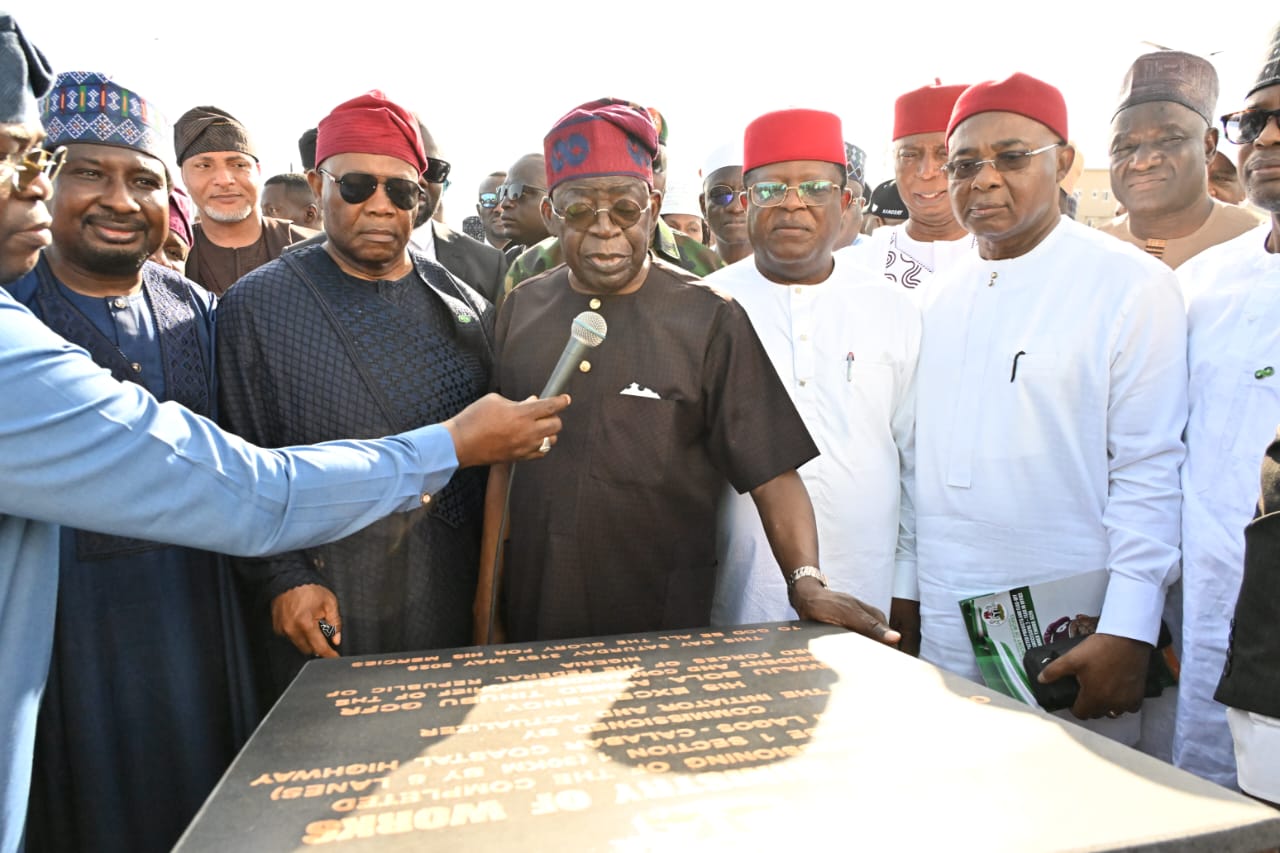
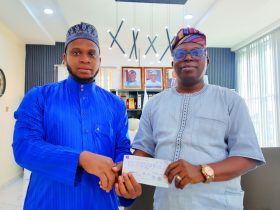
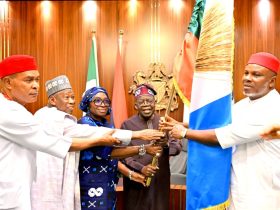
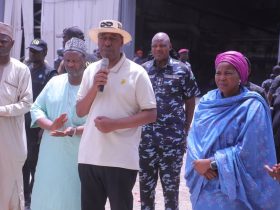
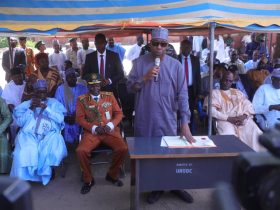



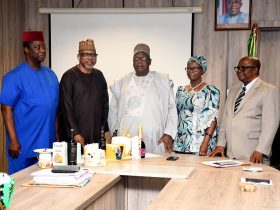
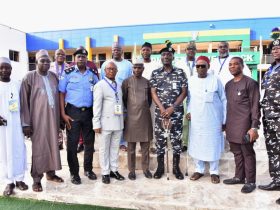
Leave a Reply